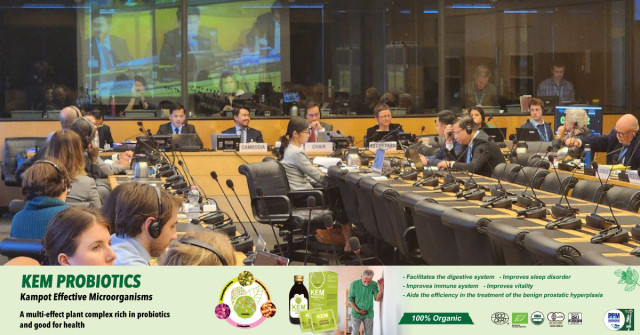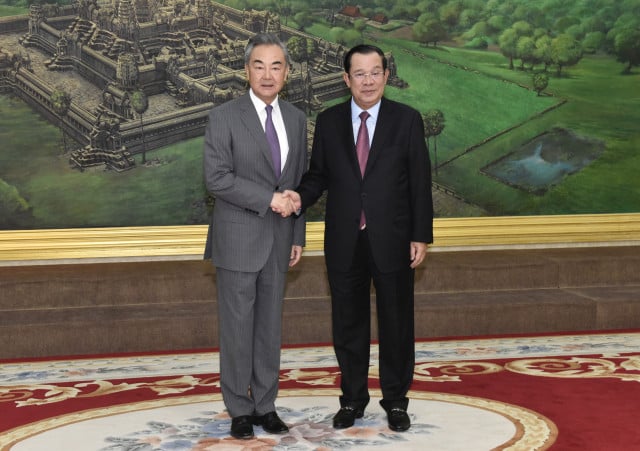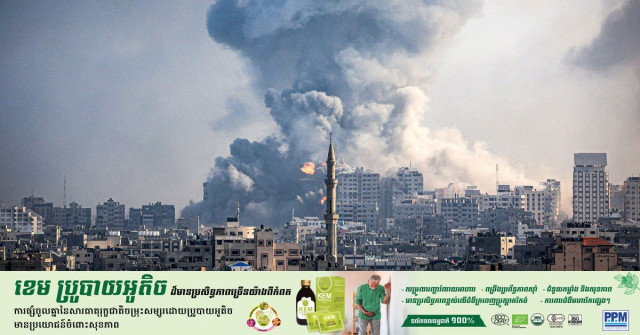UN Calls for Enforced Disappearance Laws

- By Teng Yalirozy
- February 23, 2024 7:10 PM
PHNOM PENH – The UN Enforced Disappearance Committee has urged Cambodia to introduce legislation criminalizing enforced disappearance, concerned over the lack of an independent and of corruption in the judiciary.
Cambodia, however, does not consider enforced disappearance a stand-alone crime but one covered under the Criminal Code.
Suela Janina, committee expert and country co-rapporteur, said legislation lacks an autonomous offense for enforced disappearance and that existing laws are insufficient to fully address the scope and gravity of enforced disappearance.
“When did the state party intend to adopt specific legislation criminalizing enforced disappearance?” she said in the committee’s twenty-sixth session on Feb.19-20 in Geneva, Switzerland.
Keo Sothie, vice president of the Cambodian Human Rights Committee and head of the delegation, said enforced disappearance is a severe human rights violation. Culprits must be punished, and preventive measures have to be in place.
He said enforced disappearance was not an autonomous offense but some laws under the Criminal Code covered it.
The code addresses abuse of power, unlawful arrests, and punishments for torture or death, with the state investigating and prosecuting perpetrators.
“Cambodia did not have any legislation covering extraterritorial jurisdiction. However, the Criminal Code stated that the Code was applicable to persons who committed or were accomplices to felonies committed abroad under certain circumstances,” Sothie said.
Unlawful confinement with torture or death can result in 15-30 years of additional imprisonment, he said.
Supervisors are held accountable for enforced disappearance orders, with crimes against humanity and genocide punishable with up to life imprisonment.
The statute of limitations for felonies runs for 15 years, he said.
UN asks for article acceptance and work with other countries
In 2013, Cambodia ratified the Convention on the Protection of All Persons from Enforced Disappearance, becoming the first country in Southeast Asia and among the few in the Asia Pacific region to do so.
The committee experts asked Cambodia whether it considered accepting Article 30, Article 31 and Article 32, which revolve around recognizing the committee’s competence and the urgent request of the committee to search for the disappeared person.
The committee issued four urgent actions in Cambodia, two of which are ongoing, including a 16-year-old boy's disappearance during a violent crackdown and the disappearance of a Thai political activist in self-imposed exile in Cambodia.
Keo Sothie said it did not consider the four urgent actions as disappearance cases.
“The two open cases were currently under investigation. No evidence had been found that agents of the state were involved,” he said.
The Royal Gendarmerie and military police investigated cases before civil courts, not military courts.
Complainants could file cases directly, and police, prosecutors, and the Ministry of Justice initiated investigations and ordered arrests.
“Cambodia maintained a statistical system on crimes investigated in the court system, but it had no records of cases involving enforced disappearance,” said Sothie.
“Investigations could start without complaints. Judicial police cooperated on investigations.”
Committee expert Barbara Lochbihler said the sex and entertainment industries in Asia are a source of trafficking for Cambodians, which calls for state-party measures to combat and identify victims.
She asked if Cambodia had urged ASEAN member states to ratify the convention and work together to combat enforced disappearance.
The delegation said Cambodia enforced a trafficking law in 2006 and amended it in 2008.
The country had also collaborated with neighboring countries to share best practices and conduct workshops on identifying, combating and punishing transnational crime.
“Cambodia ensured that persons deprived of liberty were properly recorded, had access to a lawyer, and could contact their families. Foreign nationals could contact their consulates,” the delegation said.
UN questions the independence of the judiciary
Suela Janina said the committee was concerned about the lack of independence of the judiciary, following reports about the issue and a significant number of corruption allegations.
The Constitution ensured the judiciary's independence and impartiality, said Keo Sothie.
The law on its own organization governed the appointment, transfer and removal of magistrates.
He said the president of the Anti-Corruption Unit had the power to carry out arrests and investigate corruption.
The police are under the jurisdiction of the Regulatory Commission, and offenses involving forced disappearance can be investigated by the gendarmerie.
“Cambodia guarantees the protection of witnesses and whistle-blowers,” he said. “Any acts aiming to harm a witness or prevent them from testifying were punished.”
Keo Sothie said in Cambodia, enforced disappearance was not justified under any circumstances, including war, threats of war, internal political instability or public emergencies.
“Cambodians’ right to life, liberty and security was explicitly enshrined in the Constitution,” he said. “It was committed to fulfilling its obligations under the Convention.”
The committee pledged to engage with Cambodia for the efficient work on enforced disappearances.















